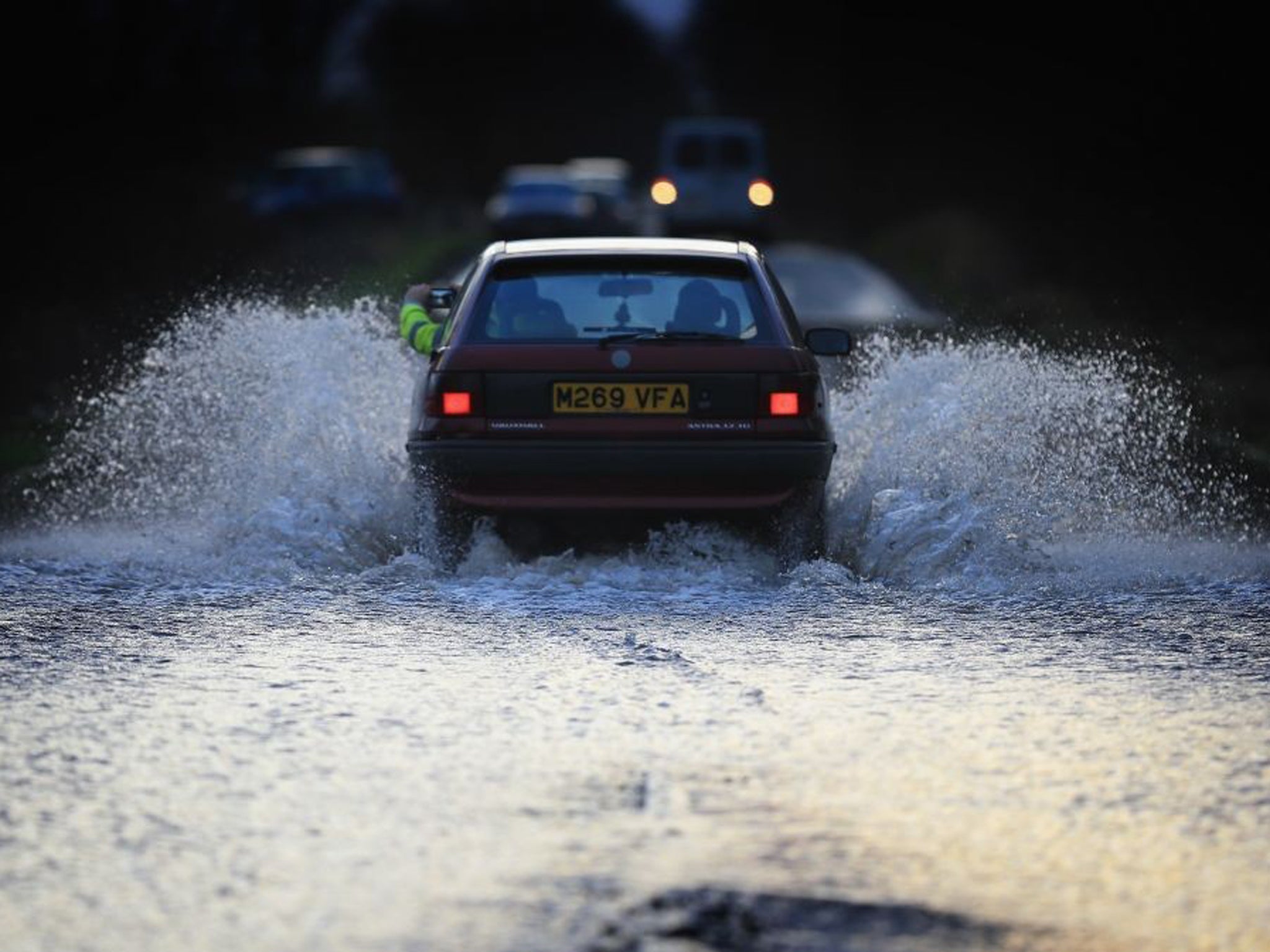Environment Agency cuts 'will hit' flood management

Managing flood risks across Britain could be effected by government budget cuts, the head of the Environment Agency (EA) has warned as strong winds and heavy rain battered the United Kingdom.
As the latest bout of extreme weather continues across the country, the EA's chief executive, Paul Leinster, warned that Government cuts will "impact" upon how the organisation deals with flooding after it was announced approximately 15 per cent of its workforce would be axed in bid to save money.
The cuts come as part of major restructuring and could see up to 1,500 jobs cut by next October. It is not yet known how many of these jobs will be flood related roles.
Mr Leinster told the environmental policy magazine ENDS: "Flood risk maintenance will be [further] impacted. All of our work on mapping and modelling and new developments in things like flood warning will also have to be resized. And we're looking at a proportionate reduction in the number of people in flood risk management."
Exceptional weather conditions combined with high tides led to 16 of the most serious severe flood warnings, where there is a "danger to life", being issued across the South West, Gloucestershire and Wales at 10am while Scotland and Northern Ireland are also on flood alert.
But Prime Minister David Cameron insisted the Government was doing everything possible to assist households hit by flooding as ministers and officials prepared to hold another meeting of the Government's emergencies committee Cobra today.
He tweeted: "I'm ensuring that all is being done to help with the floods. There'll be a Cobra meeting shortly and regular updates from EnvAgency."
The GMB union has called on the Government to stop the overall job cuts programme at the agency, which will see staff number reduced from 11,250 to 9,700.
GMB national officer Justin Bowden said: "Since November the UK has been battered by storms and these staffs are working flat out to protect citizens across the nation.
"The public need to know that job losses on this scale will impact specifically directly on flood risk management, on flood defence operations teams managing flood defences and carrying out river maintenance to enables flows to be conveyed away, enhancing the river's ecology and supporting fish stocks.
Homes in Newport, south Wales, were evacuated last night because of the risk of flooding as Wales prepared for the highest tides in 17 years. Residents at the Lighthouse Park Estate were taken to a nearby leisure centre as a precaution, and coastguards have been warned of a storm bringing 70mph winds.
People living in Ilfracombe, Devon, were joined by emergency services during the night as they gathered sand from beaches to build flood defences.
At 10am the number of flood warnings - where immediate action is required - issued by the EA across England and Wales stood at 193 while there were 231 flood alerts.
The storms have already claimed at least two lives. The body of a 27-year-old man from Surrey was found on Porthleven Sands beach in Cornwall. He had been swept out to sea on New Year's Eve night, having gone for a paddle with friends at nearby Loe Bar.
In a second tragedy on Tuesday, a woman died after being swept out to sea at the popular beauty spot Croyde Bay in north Devon. The woman, who was believed to be on holiday with her family, was rescued from the sea and airlifted to hospital before being confirmed dead by doctors.
Elsewhere, in Dorset a search was carried out for a man who is believed to have fallen into the River Stour, near Iford Bridge in Christchurch.
In Scotland heavy rain and gusts of up to 60mph could sweep across the country today, bringing further disruption after days of wet weather.
High tides and a storm surge have increased the risk of flooding in the Firth of Clyde, according to the Scottish Environment Protection Agency (Sepa).
A tidal surge is expected around lunchtime, particularly around the Firth of Clyde, Solway Firth and Ayrshire, the Scottish Government said.
Sepa has issued a flood alert for west central Scotland, warning that high water during early afternoon will be "exceptionally high" with large waves likely.
It has also issued eight flood alerts and 17 flood warnings for other parts of Scotland.
The Met Office has issued yellow "be aware" warnings of heavy rains and strong winds for the Highlands and Western Isles, Strathclyde, Central, Tayside, Fife, south-west Scotland and Lothian and Borders.
In Northern Ireland, police have warned that the docks area close to Belfast city centre could flood in the tidal surge, but have expressed hope feared serious flooding in the east of the city may now be prevented.
Officers released the latest update on the flood threat as ministers from the Stormont Executive convened an emergency meeting to discuss the ongoing multi-agency response.
Much of the effort to reinforce water defence is being focused in the docks area close to the city centre, with a number of roads set to be closed to traffic as temporary sandbag walls are built.
Last night residents of Sydenham in east Belfast were told to pack a bag and prepare for potential of evacuation. Sandbags were distributed to the public through the night while the authorities built up river defences.
But this morning the Police Service of Northern Ireland (PSNI) said more positive meteorological reports, combined with the defence work undertaken, suggested the densely-packed neighbourhood may avoid "serious flooding".
Additional reporting by Press Association
Join our commenting forum
Join thought-provoking conversations, follow other Independent readers and see their replies
Comments
Bookmark popover
Removed from bookmarks